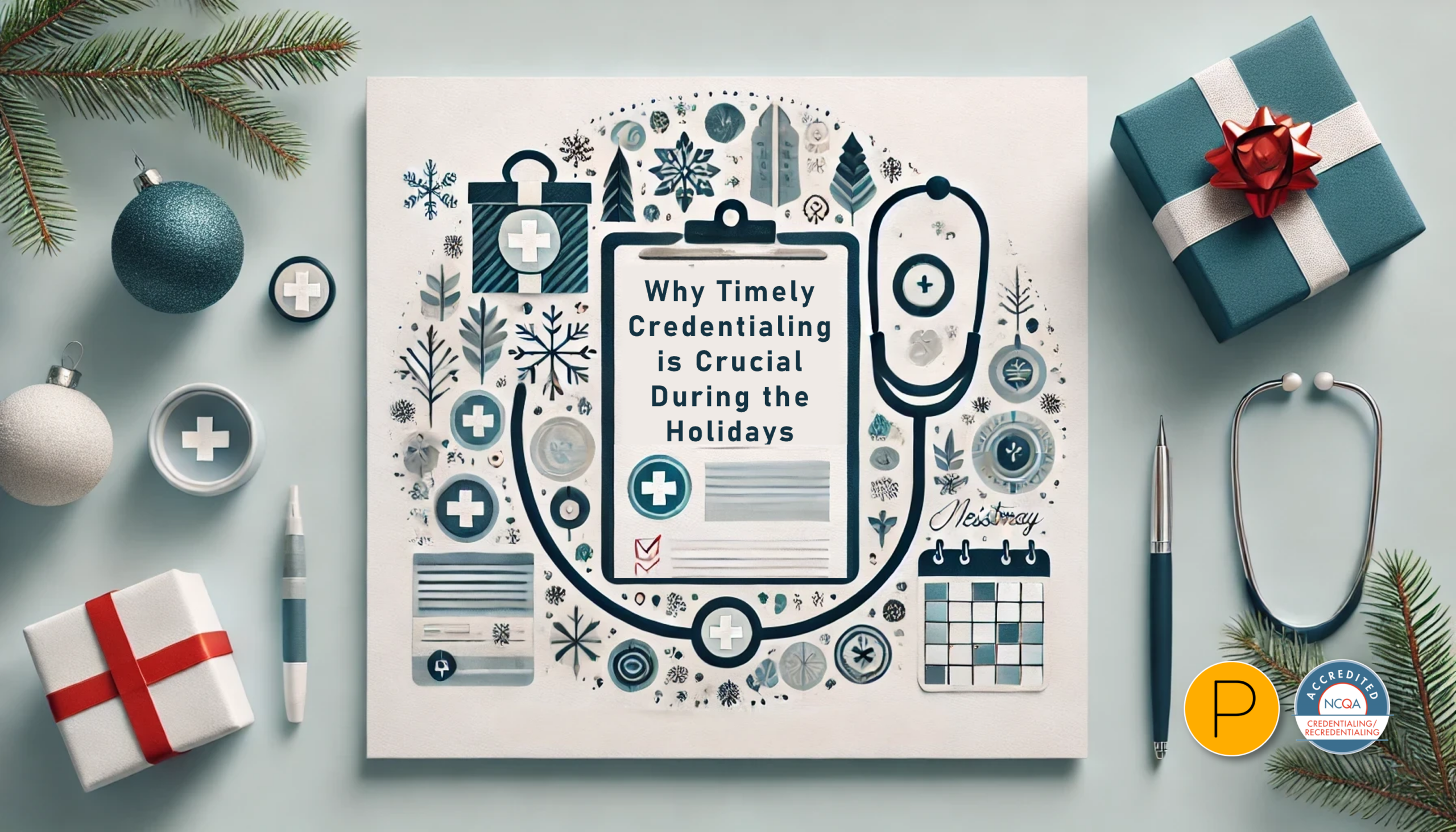Medical malpractice is a significant issue in the healthcare industry, impacting both healthcare providers and patients. In Oklahoma, understanding the current medical malpractice trends and insights is crucial for both parties to navigate this complex landscape effectively.
This article delves into five key medical malpractice trends and insights in Oklahoma for 2024. By exploring these trends, we aim to provide valuable information for those involved in or affected by medical malpractice cases, ensuring they are well informed about the evolving legal environment.

Key Aspects from a Provider’s Perspective
-
- Legal Requirements and Burden of Proof: Healthcare providers in Oklahoma face stringent legal scrutiny in medical malpractice cases. To succeed in a claim, the plaintiff must establish a healthcare provider-patient relationship, demonstrate the standard of care required, prove that the provider failed to meet this standard, and show that this failure directly caused their injury (www.alllaw.com) (Brewster & De Angelis). Providers must be aware that the previous requirement for an “affidavit of merit” was deemed unconstitutional, simplifying the process for plaintiffs to file lawsuits (www.alllaw.com).
-
- Statute of Limitations: Providers should note that, in Oklahoma, the statute of limitations for medical malpractice is two years and typically starts when the patient knows or should have known about the injury. If the injury was not immediately discovered, the two-year period can be extended, but there is usually a maximum limit of four years from the date of the alleged malpractice (governed by Title 12, Section 95 of the Oklahoma Statutes). For detailed guidance, especially if specific nuances apply to a particular case, consulting with a legal expert is always a good idea. (Oklahoma Injury Law).
-
- Damage Caps: Oklahoma previously had a cap on noneconomic damages (like pain and suffering) at $350,000, but this cap was ruled unconstitutional in 2019. Currently, there are no limits on noneconomic damages, increasing the potential financial risk for providers (www.alllaw.com) (Brewster & De Angelis).
-
- Documentation and Risk Management: Providers are advised to maintain thorough documentation of patient interactions and treatments. Proper documentation can serve as critical evidence in defending against malpractice claims. Implementing robust risk management strategies, such as regular training and adherence to best practices, can also help mitigate risks (www.alllaw.com) (Johnson & Biscone).
-
- Insurance Implications: The high rate of claims and potential for significant payouts have led to increased malpractice insurance premiums for healthcare providers in Oklahoma. This financial burden can affect the overall cost of healthcare and the sustainability of smaller practices (Brewster & De Angelis) (Johnson & Biscone).

Key Aspects from a Patient’s Perspective
-
- Seeking Legal Recourse: Due to the statute of limitations, patients injured by medical malpractice should act quickly. Oklahoma law generally allows for a two-year period from the date the patient knew, or reasonably should have known, that an injury was caused by the alleged malpractice. To navigate the complex legal landscape, it is essential to gather medical records, document experiences, and consult with a qualified attorney (Brewster & De Angelis) (Oklahoma Injury Law).
-
- Understanding Damages: Patients can seek both economic and non-economic damages. Economic damages cover quantifiable losses such as medical expenses and lost income, while noneconomic damages cover more subjective losses like pain and suffering (www.alllaw.com) (Johnson & Biscone).
-
- Procedural Steps: Patients must prove that the healthcare provider breached the standard of care. Expert testimony is typically required to establish the standard of care and how it was breached (www.alllaw.com) (Brewster & De Angelis).
-
- Impact of Court Rulings: Recent court rulings have made it easier for patients to file malpractice lawsuits by removing barriers such as the affidavit of merit requirement. Additionally, the removal of the noneconomic damages cap allows for potentially higher compensation for pain and suffering, mental anguish, and other intangible losses (www.alllaw.com) (Brewster & De Angelis).
-
- Awareness and Advocacy: Patients are encouraged to stay informed about their rights and the legal landscape of medical malpractice in Oklahoma. Advocacy groups and legal resources can provide valuable information and support for those pursuing claims (Brewster & De Angelis) (Johnson & Biscone).
Trends and Statistics
In this section, we delve into the key medical malpractice trends that are shaping the landscape in Oklahoma. Understanding these trends is essential for both healthcare providers and patients to navigate the complexities of medical malpractice effectively. We will explore the annual number of filed claims, the geographical distribution of these claims, the trends in claim resolution times, and the concentration of claims in different regions.
These insights provide a comprehensive overview of the current environment, highlighting significant patterns and changes that impact the medical malpractice landscape in Oklahoma. The medical malpractice environment in Oklahoma presents several notable medical malpractice trends and statistics:
High Rate of Claims
Oklahoma has a relatively high rate of medical negligence lawsuits per capita. This indicates a significant level of medical malpractice incidents reported and pursued legally within the state. According to a recent study, Oklahoma ranks among the top states in the U.S. for the number of medical malpractice claims filed per capita (Brewster & De Angelis).
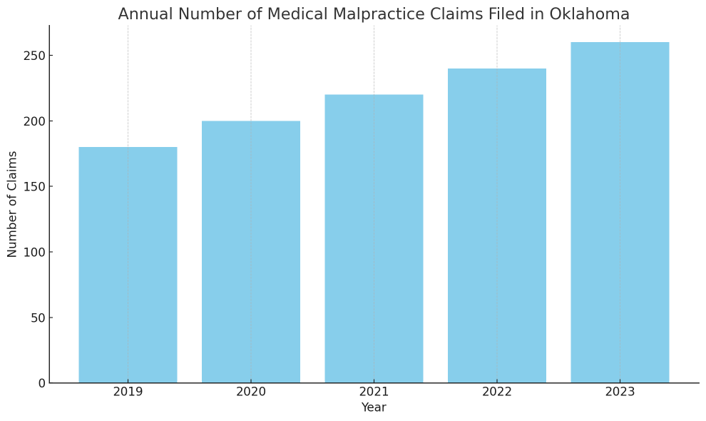
Geographical Distribution of Medical Malpractice Claims
The geographical distribution of medical malpractice claims in Oklahoma reveals that certain regions experience higher claim rates than others. Major urban centers like Oklahoma City and Tulsa see the highest number of claims, reflecting their larger populations and more extensive healthcare facilities.
Smaller cities such as Norman and Edmond also contribute to the claim statistics, albeit to a lesser extent. Understanding the geographical distribution helps in identifying areas with higher risks and can guide both healthcare providers and legal professionals in addressing and managing these claims more effectively. This insight is crucial for tailoring risk management strategies and improving patient safety protocols across the state.
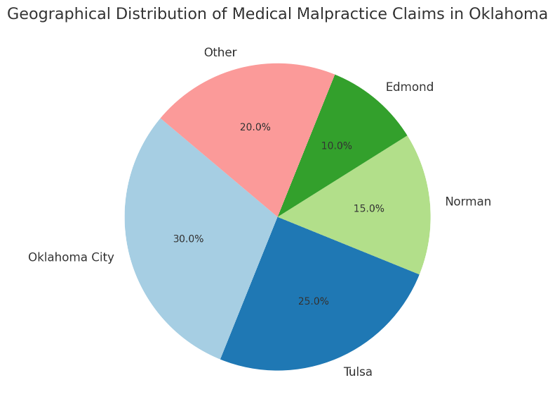
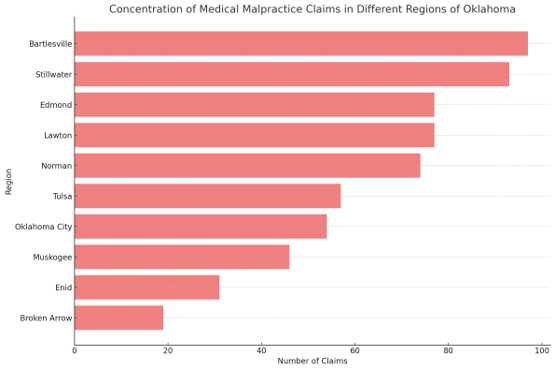
Average Payouts
While the average payout for medical malpractice claims in Oklahoma has historically been lower than the national average, significant payouts are still awarded in many cases, reflecting the severity of some medical malpractice incidents and important medical malpractice trends to take note of. The payouts vary widely depending on the specifics of each case, but some high-profile cases have resulted in multi-million dollar settlements or jury awards (Brewster & De Angelis) (Oklahoma Injury Law).
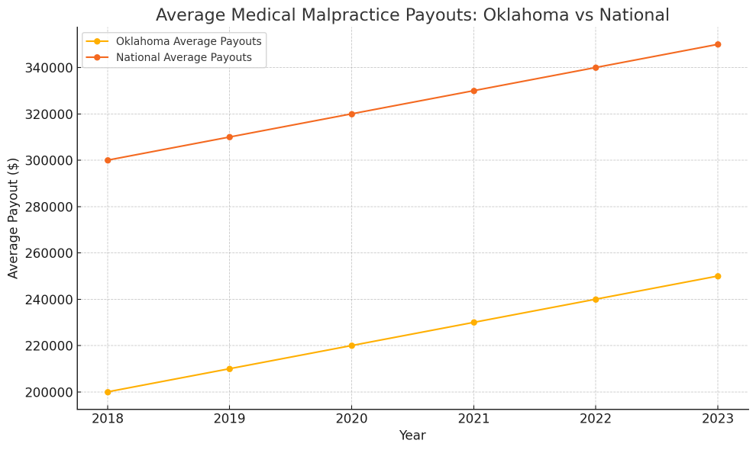
Impact of Court Rulings
Recent court rulings have significantly impacted the medical malpractice landscape in Oklahoma. The ruling that deemed the affidavit of merit requirement unconstitutional has lowered the barriers to filing lawsuits, potentially increasing the number of claims. Additionally, the removal of the noneconomic damages cap means that patients can seek higher compensation for pain and suffering, mental anguish, and other intangible losses (www.alllaw.com) (Johnson & Biscone).
Legislative Changes
Ongoing legislative discussions and changes also influence the medical malpractice environment. Lawmakers continue to debate and revise laws related to medical malpractice to balance protecting patients’ rights and ensuring a fair process for healthcare providers (Johnson & Biscone).
Insurance Implications
The high rate of claims and the potential for large payouts have led to increased malpractice insurance premiums for healthcare providers in Oklahoma. This has a cascading effect, influencing the overall cost of healthcare and the financial stability of smaller healthcare practices (Brewster & De Angelis).
The examination of these medical malpractice trends offers valuable insights into the current state of medical malpractice in Oklahoma. By analyzing the number of filed claims, their geographical distribution, resolution times, and regional concentrations, we can better understand the evolving dynamics within the state. Staying informed about these trends is crucial for both healthcare providers and patients to effectively navigate and respond to the challenges posed by medical malpractice.
Conclusion of 5 Key Medical Malpractice Trends and Insights in Oklahoma for 2024
Navigating the landscape of medical malpractice in Oklahoma requires a thorough understanding of the current trends and insights. By staying informed about these medical malpractice trends, healthcare providers can better manage their risks, and patients can more effectively seek justice for any negligence they encounter. The insights gained from analyzing the annual number of claims, geographical distribution, resolution times, and regional concentrations are invaluable for both prevention and legal strategies.
Significant court rulings and evolving legal frameworks continue to shape the state of medical malpractice, making it essential for all parties to stay updated on the latest developments. For healthcare providers, understanding these medical malpractice trends means implementing more effective risk management and patient safety protocols. For patients, staying informed ensures they are better equipped to seek justice and compensation for any malpractice they may experience.
Staying updated on these medical malpractice trends is beneficial and necessary in a constantly changing legal and healthcare environment. Consulting with a specialized attorney for more detailed information and assistance tailored to your specific situation is highly recommended. This proactive approach will help ensure that both healthcare providers and patients are prepared to handle the complexities of medical malpractice in Oklahoma.
More About Fifth Avenue Agency
For more information on medical malpractice in Oklahoma, visit Fifth Avenue Agency. If you believe you have been a victim of medical malpractice, don’t hesitate to contact a qualified attorney to discuss your case and explore your options.
Fifth Avenue Agency specializes in MPLI and medical malpractice insurance, serving 1000s of providers nationwide. Fifth Avenue Agency is part of the Fifth Avenue Healthcare Services family. Sister companies include 5ACVO (credentialing and primary source verification specialists) and Primoris Credentialing Network (credentialing and provider enrollment specialists with 54+ health plan and network provider enrollment options).
Fifth Avenue Agency originally published this article here. For more information on Fifth Avenue Agency, please visit FifthAvenueAgency.com or Contact Us.

